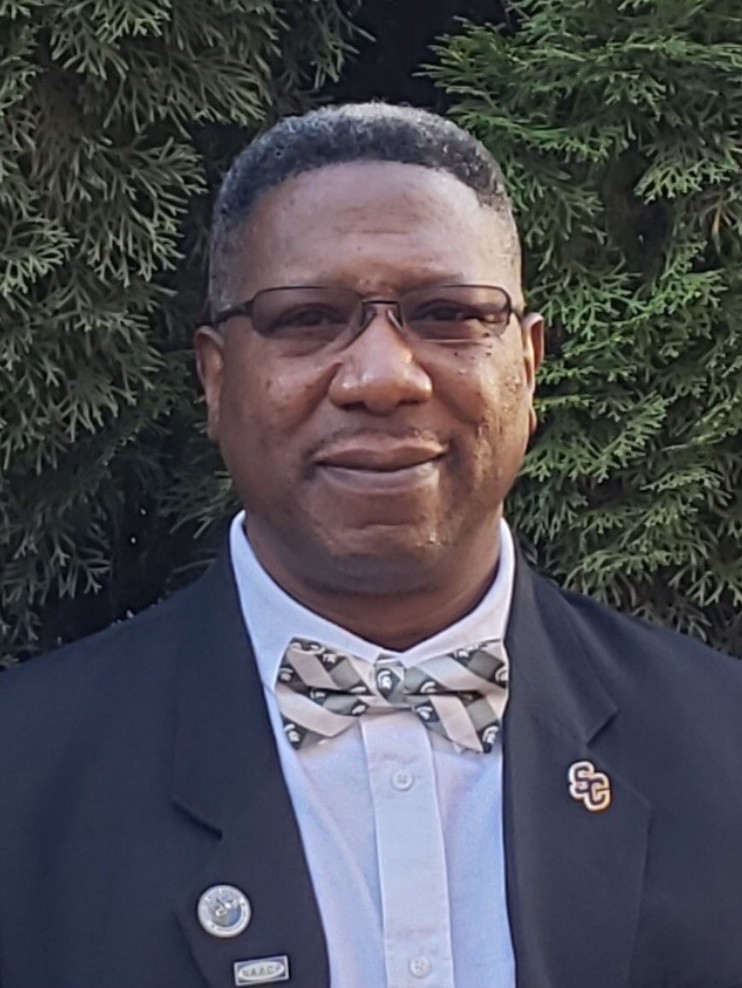Protecting Others by Promoting COVID-19 Vaccine Uptake
This content was created as part of the Michigan Vaccine Project, a three-year vaccine education effort supported by the Centers for Disease Control and Prevention and the Michigan Department of Health and Human Services. Information was current as of the date of publication.
COVID-19 vaccines were rolled out in late 2020, but low levels of vaccination among Black Americans remain concerning to community leaders.

COVID-19 vaccine uptake is low in communities of color for several reasons. First, racism and discrimination for centuries has eroded trust between health care systems, government, and communities of color. Second, racism and discrimination for centuries has led to accessibility barriers such as transportation, lack of access to high-speed internet, and scheduling (work and childcare considerations). In a national sample of Black Americans, this high mistrust has lowered vaccine confidence. Researchers found that Black Americans’ hesitancy is not stemming from resistance to the vaccines but is instead an example of their commitment to protecting themselves and their communities from harm. So, messages that focus on the protection that vaccines confer, including protecting others, are likely to resonate with that audience and improve uptake.
Speaking with the Community
Leaders and advocates in African American communities are working diligently to improve vaccination rates through access and education. One such person is Kevin Watkins, President of the Port Huron branch of the National Association for the Advancement of Colored People (NAACP), Michigan State University alumnus, nurse, St. Clair Community College instructor, and community advocate, who sat down with MSU Extension to provide some perspective on the issue of vaccine hesitancy in Black communities.

Black Americans may be more cautious with medical treatments like vaccines because of their routine experiences of racism and discrimination in healthcare settings and historical trauma and abuse like the Tuskegee syphilis study. Watkins says that when he speaks to community members who are hesitant to receive vaccinations, “the Tuskegee experiment is used, especially among older groups, as the golden example of medical racism.”
The U.S. Public Health Service (USPHS) Syphilis Study at Tuskegee was conducted by U.S. government agencies from 1931 to 1972. Initially, it was described as an experiment that “intended to observe the natural history of untreated syphilis”. However, during the course of the experiment, nearly 400 Black men in Alabama were denied vital treatment for syphilis, despite penicillin treatment widely available at the time. The men were never informed of their lack of treatment and did not give consent to be a part of the study. According to the CDC, by the time the experiment was shut down, nearly half of the original group of men had died from syphilis or related complications or had passed the infection to their partners and children; all of which could have been prevented had the unethically, unjustified experiments not occurred.
Watkins also described how the built environment can cause feelings of distrust, sharing a recent personal story, “When touchless soap dispensers, sink faucets, and paper towel dispensers first came out, a big frustration was I couldn’t get them to work. I learned to use the palm of my hand to activate them after seeing the dispensers work for white skin tones. After reading more about the technology, I discovered they were really designed to work for white pigmentation. This affects African American trust of health structures because if our community wasn’t considered with smaller initiatives like hand washing, why would we be considered with bigger things like vaccines?”
To overcome vaccine hesitancy, Watkins leads by example, saying “First, I wouldn’t advise anything that I wouldn’t do myself.” As a trusted community leader, he also emphasizes the protection that vaccines can offer, saying, “It’s also important to discuss history for explaining how devastating a life without vaccines is.” For people who are still feeling hesitant, Watkins’ focuses his outreach efforts on acknowledging the past and highlighting the importance of protecting themselves and their communities.
If you would like to learn more about vaccines, check out Michigan State University Extension’s partnership with the Michigan Vaccine Project to find links to event schedules, podcasts, publications, webinars, and videos relating to vaccine education.



 Print
Print Email
Email